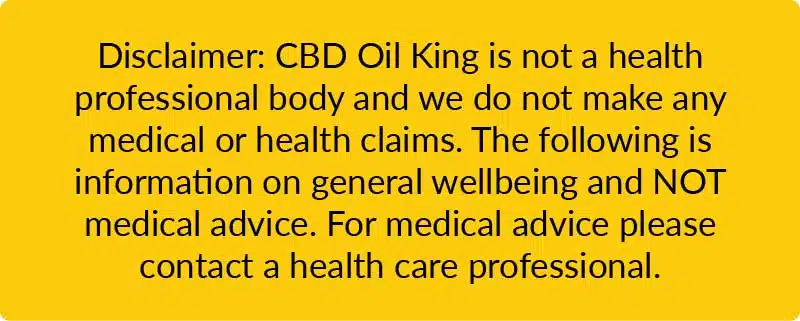 Shop Our CBD Vape Pen Range
Shop Our CBD Vape Pen Range
Anxiety can be crippling, but it doesn't have to be. Despite how common it is for people to suffer from this disorder, many still feel like they are alone in their experience. Decades of stigma has made people think that if they talk about their struggles with anxiety it will make them seem weak and vulnerable – which couldn’t be further from the truth. Everyone experiences feelings of fear and uncertainty at some point in life; talking openly about anxiety is one step towards creating a healthy and safe community environment, where no one needs to face their battles alone. In this blog post, we'll explore why breaking the stigma surrounding anxiety is so important and discuss ways you can support yourself or those around you who may be struggling with an anxious mind.
Anxiety is a condition that can be difficult to diagnose due to its subjective and individualised nature. Those who suffer from anxiety often experience symptoms such as shortness of breath, muscle tension, increased heart rate, poor concentration, and restlessness. Physically speaking, some signs of anxiety can involve sweating, trembling, or headaches. Oftentimes those suffering have difficulty sleeping due to persistent worrying. An individual experiencing symptoms of anxiety should not hesitate to talk to their doctor or health care provider to discuss treatment options. Treatment might include lifestyle changes such as stress management techniques or medication depending upon the severity of the anxiety. To manage anxiety it is important for individuals to recognize the signs and symptoms so that they can work towards recovery with the help of professional support.
Anxiety can be an overwhelming and very isolating experience, making it difficult to share with others, but discussing it openly is essential in understanding it better. When we talk about how anxiety feels, how it affects our daily lives, and how we cope with it, we create a more open dialogue while also gaining insight into our own reactions. Talking openly also has its therapeutic effects; having someone simply listen to us creates room for reflection on our thoughts and feelings. When we can reflect on what triggers these anxious episodes or what helps us manage them better, we gain more control over the situation. By sharing stories of anxiety and its impact with people around us, whether that be friends, family or even a stranger, we are normalising the conversation about mental health issues and supporting each other in times of difficulty.
Breaking the stigma surrounding mental health conditions is an important step towards positive recognition and support of those with them. This can be done by creating more conversations about mental health, educating people on the various types of mental illnesses and their symptoms, and understanding that different strategies to managing or treating these conditions are available. Overcoming the negative associations attached to mental health issues requires us to look outside our own experience, have empathy for others who may have been affected by it, and accept that these conditions are treatable. Showing acceptance for anyone struggling with a mental illness will promote greater acceptance in society as a whole and lead to better outcomes for all of those affected.
Managing anxiety can be an exhausting process, but it doesn't have to be done alone. Building a support system with family, friends, and healthcare professionals is an important element of managing anxiety. Activities like talking out worries, participating in activities with others, or even doing something as simple as taking a walk can help alleviate anxious thoughts. It also helps to have a plan in place for when the feelings become too overwhelming. Reaching out to trusted mentors and people who understand how you feel can reduce stress and provide valuable resources. Additionally, staying active and finding meaningful activities that bring joy such as meditation or journaling can be beneficial for those living with anxiety. Talking about your experiences and acknowledging that it's ok to not feel ok is another way to support yourself and others dealing with anxious feelings. To truly manage it effectively involve understanding its triggers so that one can come up with effective coping strategies to deal with them in a healthy manner.
Finding peace of mind in today's fast-paced world can feel like a daunting task. But finding ways to reduce stress can be a major step toward achieving inner calm. Reframing our perspective and engaging in regular self-care activities can help us manage our stress levels. Taking mindful breaths, focusing on positive words or phrases, and engaging in light exercise are all effective strategies that can reduce the body's cortisol and adrenaline production, which will then naturally result in lower levels of stress. By making an effort to replace anxious thoughts with more peaceful ones, we can create an internal atmosphere of tranquillity and mental clarity. Stress reducing activities such as walking outside, journaling or listening to music can also help bring us into the present moment, allowing us to take a break from whatever turbulent worries may occupy our minds. Enjoyable hobbies or creative pursuits can provide both distraction from worry as well as bridge us closer to our true passions. With intentional effort and self-assurance, we can seek out a sense of peace even amid stressful periods of life.
CBD is gaining momentum as a potential resource for people experiencing anxiety. It has been used to help manage health and wellbeing in individuals who suffer from symptoms of social anxiety, panic attacks and post-traumatic stress disorder. Thus, vape CBD for anxiety is also known as an anxiety pen. CBD isolate vape pen does not generally cause drowsiness and does not have severe side effects for the general population. In order to receive the full benefit of properties of CBD Isolate, it should be taken in low doses on an ongoing basis. Consultation with a medical professional prior to use is recommended in order to set up a plan that works best for individual needs and lifestyle, especially if they are on an existing medication. Nonetheless, the question is interesting, and it may come to anyone’s mind how does CBD work in the body?


This article is authored by Dr Casey Abrahamsmen. Dr Abrahamsmen is a board certified physician with over 13 years of experience in internal medicine and pain management. He practises Palliative care at a hospital in Venezuela and is a strong advocative for CBD and believes CBD has a major role to play towards healthy non addictive pain management habits. You can read more about Dr Abrahamsmen here.
This article was peer-reviewed by Dr M Mansoor Siddique (PhD). Dr Siddique has over eight years of experience working with CBD and CBD products.
Disclaimer: All of our products are not intended to diagnose, treat or cure any disease. It is recommended to check with doctor before starting a new dietary supplement program. All CBD products sold have less than 0.2% THC content and abide by both EU an UK law.